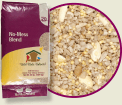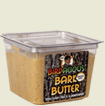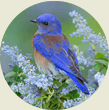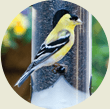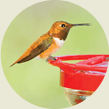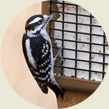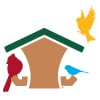Pollinators help to sustain a healthy environment that supports wildlife and us, too. Approximately 1/3 of all our food sources would not exist without pollinators. We need pollinators…and pollinators need our help! Many pollinator populations are in decline, due to the impact of extensive pesticide use along with the loss of natural habitats and native food resources. We can help pollinators survive and flourish by supporting the creation of a pollinator friendly environment in our yards.
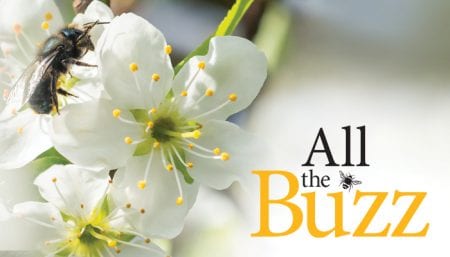
What is Pollination?
- Pollination is the act of transferring pollen grains from the male structure of a flower to the female structure in order for the plant to produce seeds from which to reproduce.
- Flowers rely on many factors to move pollen. These can include wind, water, birds, bees, butterflies, bats, and other animals that visit flowers. Animals or insects that transfer pollen are called “pollinators”.
Why help Pollinators?
- Pollinators are vital to maintaining healthy ecosystems. Plants cannot produce seeds or fruits without being pollinated.
- About 75% of all flowering plant species utilize a mammal, bird or insect to transport their pollen from flower to flower.
- Pollinated plants provide up to 1/3 of all the foods and beverages we consume.
Who are the Pollinators?
- About 250,000 species of beneficial insects are pollinators. These include flies, beetles, wasps, ants, butterflies, moths, and bees.
- Bees are by far the most effective pollinators because they feed only on flowers.
- Honeybees are very important to commercial agriculture, but native bees like the mason bees are better and more efficient pollinators of native plants.
How can I Help Pollinators?
- Landscaping with native flowering plants is the best way to supply pollinators with nectar, pollen, and homes. In-turn, the native pollinating insects make a great food resource for the birds around your home.
- Avoid using herbicides or pesticides as they are toxic to beneficial pollinating insects. Natural predators such as birds, bats and other insects will help keep pest populations under control.
- Encourage native bees (such as Mason Bees) to live around your home by providing nesting structures and native food resources.
WBU has all the expert advice and products that will help pollinators to survive and flourish by supporting the creation of a pollinator friendly environment in your yard. Shop your local store for pollinator products.

